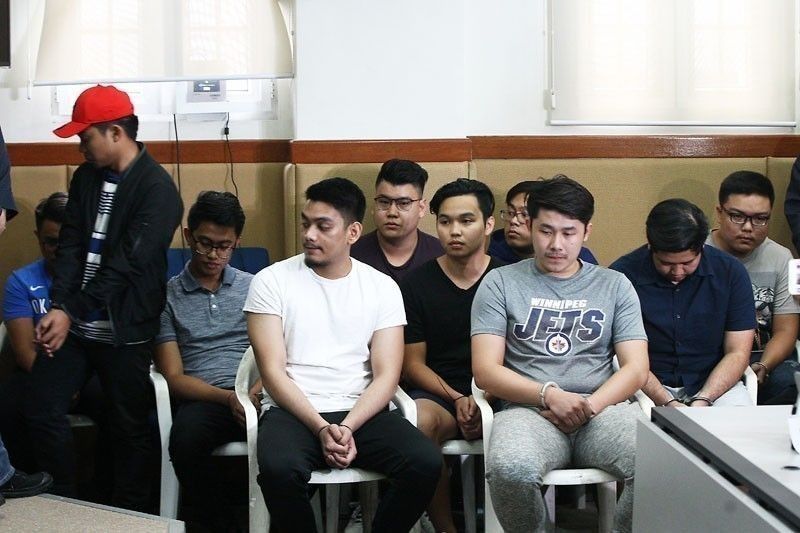Court junks fratmen's bid to dismiss Atio Castillo hazing case

MANILA, Philippines — A Manila court has rejected the bid of Aegis Juris frat men to dismiss the case against them over the fatal hazing of University of Santo Tomas law student Horacio “Atio” Castillo III in 2017.
Manila Regional Trial Court Branch 11 Acting Presiding Judge Shirley Magsipoc-Pagalilauan, in decision dated February 24 but made public only on Wednesday, denied the demurrer to evidence filed by ten members of the fraternity for lack of merit.
A demurrer to evidence challenges the sufficiency of prosecution evidence against the accused and if granted, would pave the way for the dismissal of the case without the accused presenting their evidence.
In dismissing the plea, the court said it “finds that there is sufficient evidence to sustain the indictment of the crime charged.”
“Through the testimonies of the said prosecution witnesses and documentary exhibits, the prosecution was able to establish all the elements of the offense of hazing as well as the presence of all the accused during the hazing,” the ruling read.
Ventura’s testimony
The court said all demurrers attacked the credibility of prosecution witnesses, especially Mark Anthony Ventura, who is a fraternity brother of the ten accused.
They said Ventura is “unreliable and not a credible witnesses because he has motive to implicate the accused to save himself from the prosecution.”
But the judge disagreed and said the court finds Ventura credible and inconsistencies in his testimony were just minor.
“He was able to provide a detailed, direct and straightforward narration of the events that transpired during the hazing. Evidence do not show that [Ventura] has improper motive to falsely testify against the accused, his ‘brods’ in the Aegis Juris Fraternity,” the ruling read.
During his testimony in August 2018, Ventura identified in court who were involved in the hazing rite and recalled incidents such as making Castillo do the duck walk and strip naked while enduring punches, and hitting Castillo with a paddle before he collapsed.
Enlargement of heart?
On accused’s arguments that Catillo died of enlargement of heart and not of hazing, the court gave weight to the conclusion of the medico-legal officer, Dr. Mesalyn Probadora and Dr. Joseph Palmero, the pathologist, that he passed away due “severe blunt traumatic injuries.”
Even if Castillo died due to hyperthropic cardiomyopathy, the court said that the frat men can still be held responsible for his death. “Here, accused were committing a felony of hazing when Horacio died. Had the accused did not haze Horacio, he would not have died,” the judge said.
“The prosecution having established that Horacio died of hazing and that all the accused were present during commission of the crime, it is now incumbent upon the accused to adduce evidence to controvert that of the prosecution or that they prevented the commission of crime of hazing,” it added.
If found guilty of violating the Anti-Hazing Law (Republic Act 8049) with a fatal result, the ten fraternity men will face up to 40 years in prison.
- Latest
- Trending






























